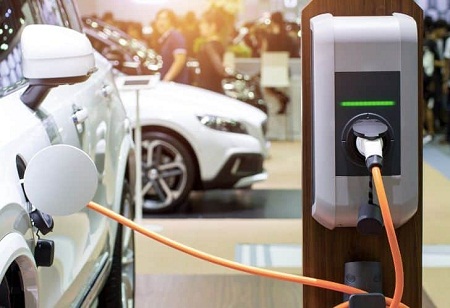Aloke Sharma, the president of COP-26 summit, received a letter during the Glasgow gathering that was signed by nearly 500 parent groups from 44 countries urging to limit air pollution and protect the children's suffering from it, according to New York Times. The condition in India is worse than ever, more than 120,000 people died last year due to air pollution. Right now, the average particulate matter concentration in air is as much as 7 times higher than WHO’s guided 10 μg/m³.
In addition, the urban population of India is ramping up like never before, thereby stimulating the need for mobility and making the matter horrifying. According to a recent study, vehicles account for 50% of the air pollution in the nation's capital, Delhi. In this situation EV can be a fresh breath of air that our country needs. While the Honda electric cars and Tata electric cars are running in the forefront. The country’s EV startups are also bringing in some new innovations in the electric vehicles that are becoming the buzzwords of the automobile industry. In this article, we are going to explore the factors shaping the EV startup ecosystem in India.
Government policies
The government of India is focused on transforming India into an EV manufacturing hub. To give a boost to the companies producing advanced batteries, Niti Ayog had announced incentives worth $4.6 billion by 2030, starting with a cash and infrastructure incentive of $122 million in 2021. To increase the share of locally-produced components of the xEV (fuel-cell electric vehicles, hybrid electric vehicles, plug-in hybrid electric vehicles) parts, the Ministry of Heavy Industries and Public Enterprises (MHIPE) also introduced the Phased Manufacturing Programme (PMP). These schemes and initiatives mark a great opportunity for the EV start-ups for ramping up their development and innovation programme.
Along with the central government of India, the state governments like Kerala and Delhi are also bringing in new initiatives to develop the domestic EV manufacturing industries of the country.
For example, Kerala Startup Mission (KSUM) is pushing the state's technology-based start-ups through various schemes and policies. Recently Rajeev Chandrasekhar, Union Minister of State noted that, the startups in the state should focus on developing electric vehicles as part of the Kerala Startup Mission (KSUM). The Minister also insisted that the startup should not only focus on making products for the domestic market but also explore the International market.
Investment
With the government of India’s plan of “All EV '' by 2030, the EV market is poised for steady growth, attracting potential and big investors in the market. In the last three to four years EV startups of India have managed to raise a considerable amount of investment. As far as numbers are concerned, Indian EV startups by corporate, venture capital and private equity firms had seen a growth of 170% in 2019 and in 2021 the EV Startup’s has bagged 25, 045 crores in less than seven months.
Big names like Ratan Tata, Sachin Bansal are in the list of investing in the Indian startups like Ola electric mobility, Ather Energy. Big firms like Bajaj auto, Hero Motocorp, TVS Motors, Lets Venture Fund, Investus capital India and many more have considerably invested in the startups like BluSmart, Welectric, Yulu, Earth Energy EV, Euler Motors, Numocity Technologies, etc. For now, the EV market in India is predominantly occupied by the Two Wheeler and Three wheeler segments. However, with new innovations by the startups backed by corporate funding, premium automobiles are also coming into the market, giving India an unique position in the total EV segment.
Collaboration and Innovation
The EV startups are also bringing in new innovations catering to the needs of various other segments thereby replacing the IC engines with EV in the nations. To start the list, Yulu has collaborated with Delhi Metro Rail Corporation (DMRC) to solve the problem of first mile and last mile connectivity, by designing a bike for the urban traffic condition and the company is currently catering their service in and around the metro service in Delhi. The company has also launched a new model named Yulu DEX. The rear carrier of this EV is specifically designed to take loads upto 10kgs making it the perfect option for the delivery personnels. Pune based Tork motors is also bringing in new innovation in the field of EV. The company is bringing new ownership options like leasing, and they are also setting up fast-charging infrastructure in Pune. DOT, an EV logistics firm located in Gurugram, is providing EVs to major e-commerce and food-tech players including Walmart, Amazon, Grofers, Blue Dart, DHL, Lenskart, Swiggy, and McDonald's.
Hurdles to overcome
The rising concern amidst the general mass regarding climate change along with rising fuel prices in the nation is building up the recent demand for EV alternatives. However, to meet this demand, the EV startups of our nation have to come up with new innovations to cover up the problems of the industry like battery capacity and charging infrastructures that can meet the demand of 1.37 billion population. However, when viewed in a larger context, the future EV sector in India in particular, and the globe as a whole, appears to be promising. Thus setting a right environment for the startups of our country to establish a firm grip in the coming days.
